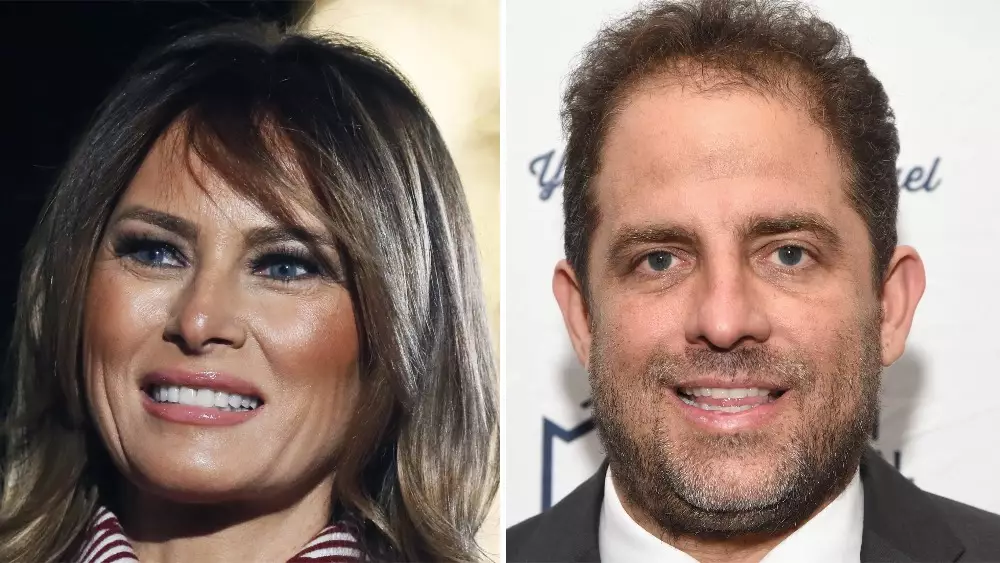In an age where media representations of public figures can significantly influence public perception, the announcement of a documentary focusing on Melania Trump, directed by Brett Ratner, presents a compelling lens through which to view one of the most controversial First Ladies in American history. Set for release on Prime Video, this film promises to offer audiences a rare, behind-the-scenes glimpse into Melania Trump’s life, marrying the realms of the personal with the political in a way that could redefine our understanding of this enigmatic figure. With filming beginning shortly after Donald Trump’s reelection victory, the timing of this project is loaded with implications, provoking questions about its motivations and the narratives it may seek to craft.
The documentary space has often served as a battleground for political discourse, and with Amazon’s exclusive licensing agreement, the project raises eyebrows. It suggests a complex interplay between technology giants and political narratives. Amazon’s CEO Jeff Bezos has previously expressed support for Donald Trump, exemplifying how corporate interests can blend with political allegiances. This partnership hints that the documentary will not merely recount Melania Trump’s life but could function as an extension of a broader political narrative, invoking both admiration and critique.
Furthermore, as public sentiment shifts — often unyielding in its critique of media manipulation — one cannot help but wonder how this documentary will navigate the treacherous waters of bias. With Ratner’s return to the director’s chair after a prolonged hiatus marked by allegations of misconduct, the ethical dimensions of filmmaking and storytelling come to the forefront. Will the finished product reflect a sanitized version of events meant to rehabilitate public perception or will it embrace a candid portrayal, enabling nuanced discussions about Melania Trump’s role in the Trump administration?
Melania Trump embodies a multiplicity of identities: a Slovenian immigrant, a former model, an entrepreneur, and, most prominently, the First Lady of the United States from 2017 to 2021. Her iconic initiative, “Be Best,” aimed at combating bullying and promoting children’s welfare, stands in stark contrast to the often harsh realities of political life during her husband’s presidency. The dichotomy between her public image — often described as reserved and formal — and the tumultuous nature of the political landscape in which she operated presents fertile ground for exploration. It compels us to dissect not only her initiatives but the interpersonal dynamics between her and her husband, and their implications for American culture.
These explorations function on a dual level. On one hand, they flesh out her accomplishments and contributions, while on the other, they probe deeper questions about the complexities of navigating power as a woman, especially within the confines of an administration often mired in controversy. The documentary’s success hinges on its ability to strike the appropriate balance between these opposing narratives, potentially reframing Melania Trump from a figure often overshadowed by her husband to a nuanced character in her own right.
The anticipation surrounding the documentary’s release seems palpable, not only due to Melania Trump’s unique position but also because of the intricate web of relationships and controversies it symbolizes. With Ratner as director — a figure who has scarce credits following his exit from mainstream filmmaking amidst personal scandal — the documentary could serve as a bellwether for how the industry handles figures who have faced public scrutiny. The choice to engage Ratner is courageous yet fraught with potential pitfalls; a misjudged narrative could reignite dialogues about accountability and ethics in storytelling.
Moreover, in a media landscape increasingly wary of sensationalism, the stakes are high regarding what vision will be ultimately presented to the viewing audience. As Prime Video gears up to share this narrative, questions loom about how Melania Trump will be represented — will her story be one of empowerment, resilience, or complicity? The myriad possibilities algorithmically cater to various audiences and their preconceptions, allowing for an array of interpretations that only time will reveal.
As audiences await the culmination of this ambitious documentary project, it becomes essential to reflect on the broader consequences of such productions. They shape not just cultural memory but also public dialogue. The documentary on Melania Trump may very well encapsulate or challenge the narratives that have emerged about her during her husband’s presidency. Ultimately, as Prime Video prepares to roll the cameras, the documentary holds the potential to evolve the conversation around identity, power, and representation in the contemporary political arena. It invites viewers to consider not only who Melania Trump is as a person but also who she signifies in the ongoing American narrative.
In a time when the lines between public and private lives blur with each headline, this documentary could ultimately serve to deepen our understanding — or complicate it. Either way, it is bound to provoke thought, discussion, and possibly even dissent in the multifaceted discourse surrounding one of the most polarizing figures of our time.
